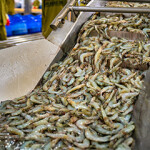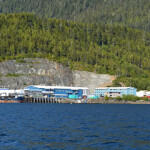Op-ed: President of Kenya calls for accelerating sustainable development of seafood sectors

Uhuru Kenyatta is the president of Kenya and a member of the High Level Panel for a Sustainable Ocean Economy.
Our dependence on the great, global ocean cannot be overstated. It sustains and benefits us all by providing jobs and livelihoods, as well as a valuable source of nutritious food. While fish provides almost 20 percent of protein in most of the world and across Africa, in some African countries this figure is higher, particularly in poorer countries. Seafood is of particular economic and social value to us as a readily available and relatively affordable source of protein.
As the global population rises to 10 billion in coming decades, our demand for seafood will rise. One of the most pressing questions of our time is how we can continue to source sufficient food and nutrition for everyone in a resource constrained world. Yet it looks like the ocean, once again, could provide some answers.
A new scientific paper, “The Future of Food from the Sea,” authored by an esteemed group of scientists in support of the High Level Panel for a Sustainable Ocean Economy, a unique body of 14 serving heads of state, estimates that, under reasonable growth assumptions, the ocean could supply over 364 million metric tons of animal protein. That’s six times more than it does today and more than two thirds of the animal protein the FAO estimates will be needed to meet future global demand.
The greatest gains for our future food security can be made through accelerating the development of marine aquaculture, known as mariculture and, to a lesser extent, through reforming wild fisheries management. Yet, to realize these gains, it is clear that we must urgently reform these sectors so that they are sustainable, and thereby viable, sources of food for future generations.
This throws up significant challenges that we must – and can – overcome. Mariculture production can cause negative environmental effects, so we must fast-track innovative new feeding and husbandry regimes before we accelerate its expansion. Currently, most of the feed for cultured fish comes from capture fisheries, which puts pressure on ocean ecosystems and wild fisheries. We must also focus production towards the least resource intensive marine species, such as molluscs.
Better fisheries management is a priority for Kenya and many other nations, and it needs to be. The paper offers clear directions on how to put our fisheries resources on a sustainable footing. It emphasizes that, if the international community works together to end illegal and overfishing and ensure that fisheries are effectively managed and equitably used around the world, wild fisheries could produce 20 percent more fish than they do today and 40 percent more in the future. Ending perverse subsidies that promote overfishing and inequitable sharing of benefits will also support this increase in fisheries production.
Accelerating the sustainable development of both of these sectors would benefit Kenya and other African countries on many levels. Not only would it provide great economic opportunities, it would also help us secure food and nutritional security, not least among our rural and coastal communities, where malnutrition continues to be a challenge. What’s more, because most seafood has a lower carbon footprint than land-based animals, developing these sectors would help limit our national greenhouse gas emissions associated with food production. Importantly, it would also reduce the imperative to make further changes in land-use, which could help avert conflicts, while conserving forests and other important carbon stores.
Harnessing the potential of our ocean to provide low-carbon food for the future is clearly a route we can and must take, yet it cannot be forged by any one country alone. It requires a unified global vision centered around sustainability, multilateral action and significant investment. Achieving these reforms would throw a lifeline to billions of people and pull many out of hunger, one of our global ambitions under the U.N. Sustainable Development Goals. It is clear that it is not going to be easy – but we are fighting for our futures, and it is a fight we have to win.
Photo courtesy of Amanda Lucidon, White House photographer





Share